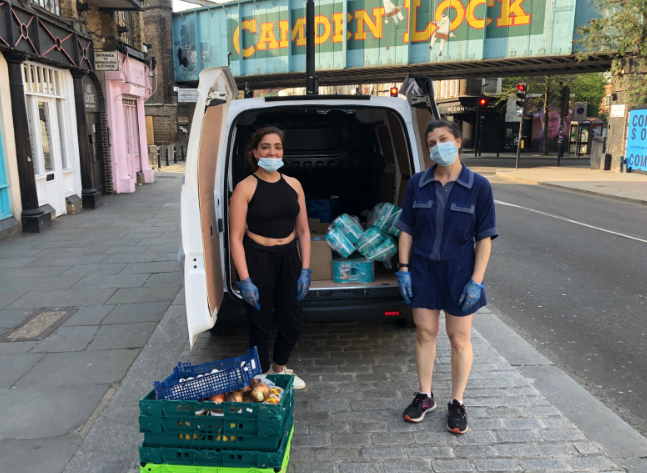
I’ve been lucky enough to have been commissioned to write pieces on Lewisham and Deptford by 853.London as lockdown continues. It’s paid work, which I appreciate because journalism is time-consuming and takes skill which has to be learnt through years of experience and training.
853.London is an online-only news site for South East London which is run by Darryl Chamberlain and is successfully crowdfunded by readers. As businesses stop advertising in newspapers after taking a COVID-sized punch, this model of crowdsourced journalism will become more important to pay the wages of writers, editors and photographers.
Other online news sources using this model include The Bristol Cable where readers can pay a fee to become “co-op” members. In exchange, members take part in monthly meetings where they have a say on the type of stories they want to see. Their journalists have produced some excellent investigative pieces, with one longlisted for this year’s George Orwell Prize for “Exposing Britain’s Social Evils”. Not only is this a rather dramatically-worded award to be nominated for but an impressive achievement for a news source that was launched just six years ago.
Last year, they uncovered an ice cream van franchise owner who forced some of his workers to live in slave-like conditions. One worker was paid just £5 a day for seven years. The Cable continued investigating the boss after he was slapped with an anti-slavery court order and found that he may have breached the court’s conditions. This kind of commitment to a story costs a lot of money, especially for legal advice, and a lot of time. There’s a good summary of the investigation and a long explanation of how the journalists uncovered the story in the brilliant podcast, The Tip Off (Episode 42).
But even the Cable openly admit that their funding model isn’t foolproof. In a recent editorial, they warn: “We have not yet seen the large uptick in membership that will help prove that journalism based on transparency, quality and community ownership is sustainable.”
Another interesting local news source is London SE-1. It’s a cross between an online bulletin board, a forum, and a classifieds page which is run by a family-owned printing business. It’s regularly updated with punchy and straightforward articles that inform locals about a tennis court re-opening or pavements being widened to make way for sufficient social distancing. It’s like a self-sustaining terrarium with the forum and classifieds pulling in content and readers. It’s also not surprising that this website is popular when the South London Press now covers a huge patch that includes everything from Westminster, Merton to Bromley. Not so “local” anymore.
Earlier this month, the New York Times reported on the “struggling” local news industry in Britain: with fewer people venturing outside there are fewer people picking up papers. Some people, such as the comedian Frankie Boyle, have been rather gleeful about the prospect of the newspaper industry’s decline. It seems his opinion is popular with his tweet ‘liked’ by more than 100,000 people.
I assume Frankie Boyle was referring more to national titles here than his local paper in Glasgow. It’s been a particularly bad year for the way some nationals have treated celebrities. I’m thinking about the death of Love Island host Caroline Flack and the continued hounding of Meghan Markle.
But we’re not all bad, Mr Boyle. Some local papers, including the Camden New Journal where I previously worked, have recently started outreach work by delivering food and essentials to some of the most vulnerable in their community. After all, the reporters know which areas are the most destitute and who may have fallen through the cracks in receiving government help.
My former paper, The Islington Tribune, where I was the senior reporter, didn’t feature Caroline Flack before or after her death, despite us knowing she lived in the borough. Celebrity news of that kind just wasn’t what our paper stood for.

Where there are no independently owned local newspapers, news sources such as 853.london and SE-1 thrive. People naturally crave information, especially when it comes to their safety and learning about what’s happening locally during a time of crisis.
But it’s still hard to predict where the nation’s local newspapers will be in a year’s time once the virus is under control through the widespread pickup of a vaccine. I’d like to think that those titles which stepped up and actually came to the aid of local residents will bounce back quickly with pages full of adverts and a willing body of readers to contribute to its funding, if necessary.
